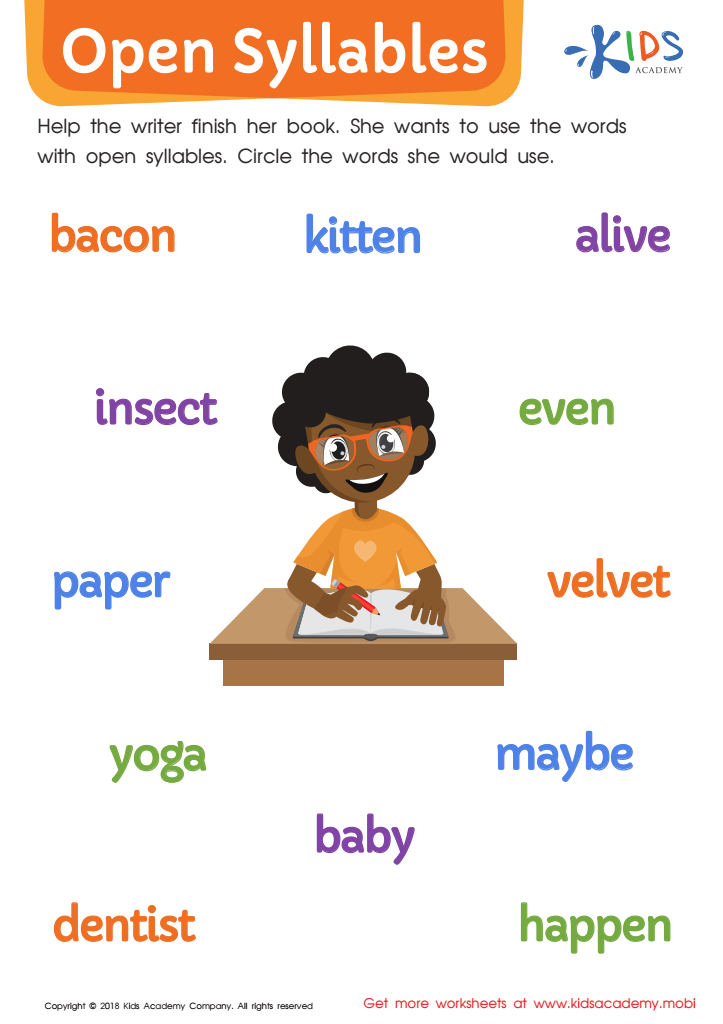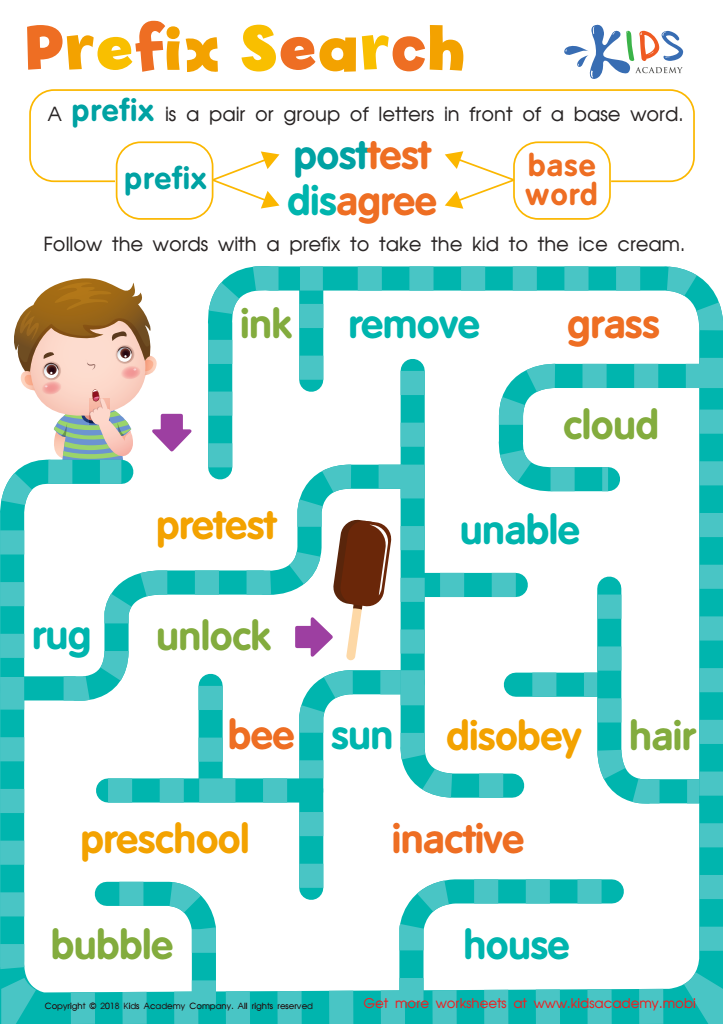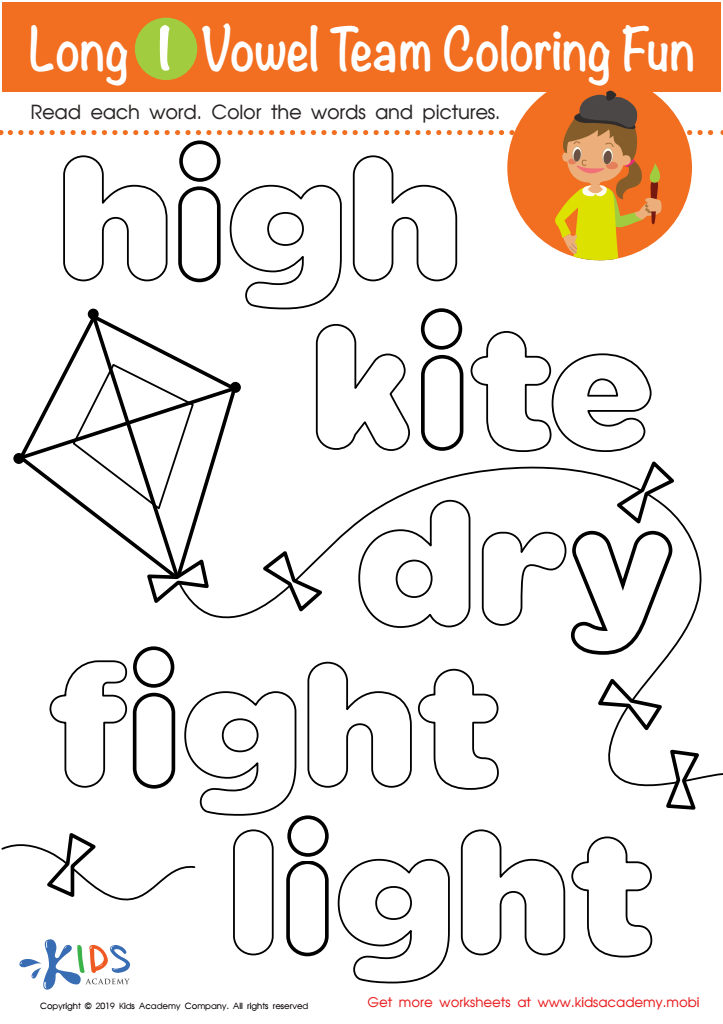Word identification Normal Alphabet Worksheets for Ages 7-9
5 filtered results
-
From - To
Help your child master word identification with our engaging Normal Alphabet Worksheets, designed specifically for ages 7-9. These worksheets enhance reading skills by encouraging children to recognize and understand common words through fun activities and exercises. Each sheet features interactive tasks that promote phonemic awareness, vocabulary development, and spelling proficiency. Ideal for both classroom and home use, our worksheets provide a structured yet enjoyable way for young learners to build their reading confidence. With a variety of exercises that cater to different learning styles, children will enjoy learning while developing essential literacy skills. Download your worksheets today and watch your child thrive!


Open Syllables Worksheet


Phonics and Word Recognition: Assessment 1 Worksheet


Reading: Prefix Search Worksheet


Long I Vowel Team Coloring Worksheet


Phonics and Word Recognition: Assessment 2 Worksheet
Parents and teachers should care about word identification in the Normal Alphabet for ages 7-9 because it serves as a foundational skill critical for literacy development. At this age, children are transitioning from learning to read to reading to learn. Effective word identification enables them to decode text swiftly and accurately, improving their overall reading fluency.
Mastery of word identification helps children navigate complex texts, expand their vocabulary, and enhance comprehension skills. As they encounter various genres and subjects, fluency with the Normal Alphabet allows for a more profound engagement with content, fostering a love for reading. It can also boost their confidence in expressing ideas and participating in discussions.
Moreover, proficient word identification has long-term implications for academic success. Early struggles with reading can lead to reading difficulties later on, impacting performance across all subjects. Supporting children in developing these skills not only aids in their immediate learning but also sets them up for continued growth in literacy.
By focusing on this essential milestone, parents and teachers play a crucial role in shaping a child’s educational journey, ensuring they have the tools necessary to thrive in not just academics but communication and critical thinking throughout their lives.

 Assign to My Students
Assign to My Students















